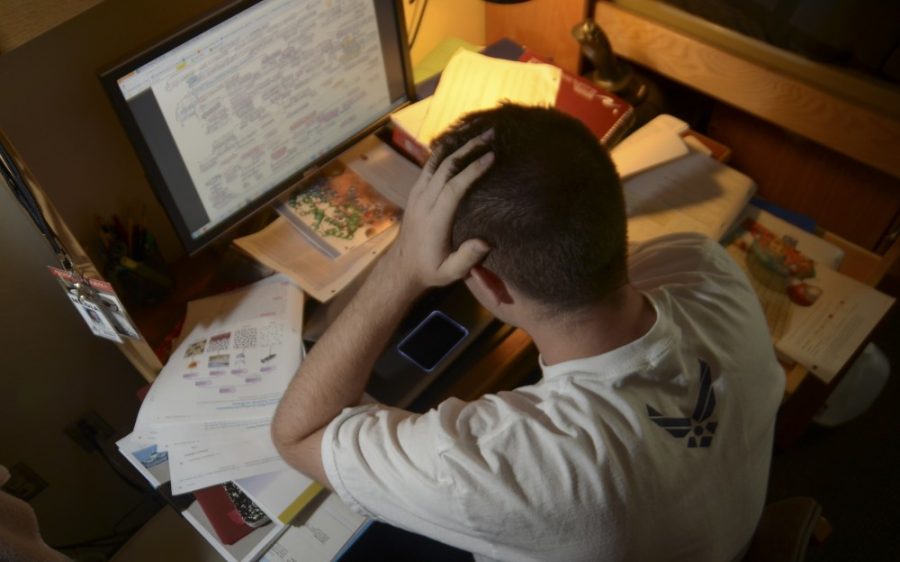When it’s time to hit the books, the perfect place to study is not always easy to find. Luckily, UA students have a lot of options to choose from: multiple libraries on campus, dorm study rooms, tutoring centers, the Think Tank and numerous computer labs.
Library information analyst Rae Swedenburg said the UA Main Library is often the first spot new students will go to study on campus. It is staffed with research specialists to help students find academic sources and technical experts to help with various computer programs used for projects, like PowerPoint and Excel, she added.
The library is open 24 hours for UA students during normal weekdays and finals. Swedenburg said students can get answers to their research questions at the Information Commons in the Manuel T. Pacheco Integrated Learning Center, or online via the UA Library Chat.
In addition, students can get help on multimedia projects in the Multimedia Zone, located on the bottom floor of the library. The Multimedia Zone is equipped with both Apple and PC computers with software for photo, audio and video editing.
The Think Tank, located in the Robert L. Nugent building adjacent to Old Main, offers free walk-in tutoring for lower level math, science and general education classes, a writing center, weekly course reviews and academic survival tips for making it through the first year of college.
Melissa Title, a spring 2012 graduate who studied psychology and sociology and worked at the Think Tank, said she visited several times as a freshman to get help on her college algebra homework.
“The undergraduates and graduate students at the Think Tank are really knowledgeable,” she said. “They know their stuff. People come in for five hours at a time, particularly for math classes.”
She said the Think Tank also offers individual tutoring for students looking for more personalized help.
Title said when she has to get work done she prefers either the Arizona Health Sciences Library or the Science-Engineering Library. “I don’t like the Main Library because I have to walk around for 15 minutes before I can find a spot,” she said. “The smaller libraries on campus are quieter and offer a better study environment.”
For some students, even the quiet floors of smaller libraries on campus offer too many distractions to get work done. Kaylie Myll, a marketing senior, said she has to lock herself in her room to study.
Myrna Quezada, a double major in Spanish and Portuguese and an employee for Residence Life, said all of the on-campus dorms are equipped with Wi-Fi and offer quiet study rooms for new students with a mentality similar to Myll’s.
“Dorm study rooms generally have a quiet, friendly environment,” she said. “For new students interested in a particular area of study, Residence Life offers learning-living communities, where students with similar majors live on the same hall.”
She said there are living-learning communities for students in fine arts, math, pre-med, pre-business and more. Residence Life also offers the Faculty Fellows Program for students who want to work with professors in their field of study while in the dorms.
Faculty fellows are appointed to specific residence halls, where they spend time helping students with particular fields of study. The Residence Life Academic Success Program collaborates with the Think Tank to provide tutoring for students living in the residence halls as well. Students can receive help without ever leaving the dorms in a wide variety of subjects including math, biology, chemistry, writing, general education courses and languages.









